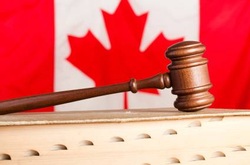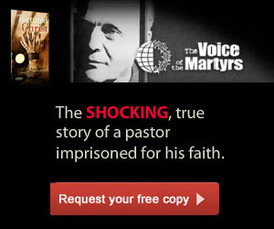
A "watershed case" regarding freedom of expression on the subject of homosexuality was handed down in Canada this fall, giving hope to religious liberty advocates in the United States who say the ruling could impact future U.S. decisions.
"Matters of morality, including the perceived morality of certain types of sexual behavior, are topics for discussion in the public forum. Freedom of speech does not just protect polite speech," Alberta Appeals Court Justice Clifton O'Brien wrote in the ruling.
"Matters of morality, including the perceived morality of certain types of sexual behavior, are topics for discussion in the public forum. Freedom of speech does not just protect polite speech," Alberta Appeals Court Justice Clifton O'Brien wrote in the ruling.
The case, which played out in the courts for a decade, involved Canadian pastor Stephen Boissoin, who wrote letters to the editor of his local newspaper expressing his religious views on homosexuality and his concern that the behavior was being promoted in public schools.
A University of Calgary professor reported the letters to the Alberta Human Rights Commission, accusing him of hate speech. The commission concurred with the professor and fined the pastor $5,000, prohibiting him from further expression of his views on homosexuality.
In what appears to be a final victory for the pastor, according to Alliance Defending Freedom, Alberta's highest court affirmed in October Boissoin's right to publicly express his religious views.
"Public expression should not be censored simply because the views expressed are unpopular," read an ADF blog post Nov. 2. "... This legal victory has great significance for religious expression. As American courts look more frequently to international jurisprudence for guidance, this victory for freedom of expression has important implications for preserving and promoting religious freedom in America."
Gerald Chipeur, a Canadian attorney who is affiliated with ADF, said, according to LifeSiteNews.com, "This was a watershed case, very important, in terms of freedom of expression and religious liberty. Going forward, it will be extremely difficult, if not impossible, for religious or political debate to be found in breach of Alberta's current human rights laws."
Chipeur added, "The tools of censorship should not be available to prohibit freedom of religious expression in Canada. The court rightly found that this type of religious speech is not 'hate' speech."
The three justices stated that "Boissoin and others have the freedom to think ... that homosexuality is sinful and morally wrong ... (and) they have the right to express that thought to others."
A University of Calgary professor reported the letters to the Alberta Human Rights Commission, accusing him of hate speech. The commission concurred with the professor and fined the pastor $5,000, prohibiting him from further expression of his views on homosexuality.
In what appears to be a final victory for the pastor, according to Alliance Defending Freedom, Alberta's highest court affirmed in October Boissoin's right to publicly express his religious views.
"Public expression should not be censored simply because the views expressed are unpopular," read an ADF blog post Nov. 2. "... This legal victory has great significance for religious expression. As American courts look more frequently to international jurisprudence for guidance, this victory for freedom of expression has important implications for preserving and promoting religious freedom in America."
Gerald Chipeur, a Canadian attorney who is affiliated with ADF, said, according to LifeSiteNews.com, "This was a watershed case, very important, in terms of freedom of expression and religious liberty. Going forward, it will be extremely difficult, if not impossible, for religious or political debate to be found in breach of Alberta's current human rights laws."
Chipeur added, "The tools of censorship should not be available to prohibit freedom of religious expression in Canada. The court rightly found that this type of religious speech is not 'hate' speech."
The three justices stated that "Boissoin and others have the freedom to think ... that homosexuality is sinful and morally wrong ... (and) they have the right to express that thought to others."


 RSS Feed
RSS Feed